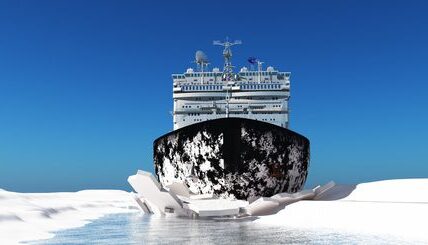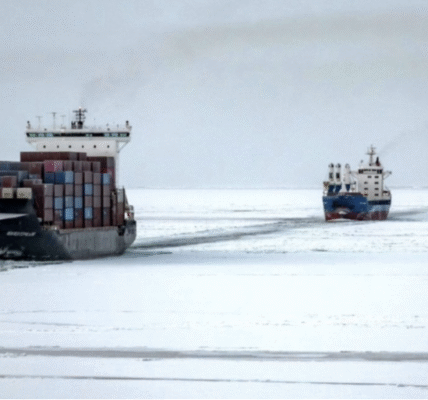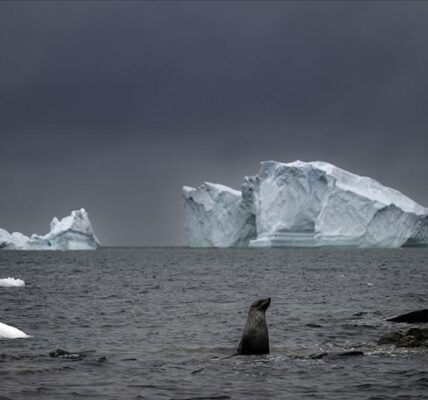Scientists have discovered that the melting permafrost in the Arctic is releasing toxic mercury into the water system, which could have severe consequences for the food chain and the communities that rely on it. Researchers from the University of Southern California studied the transport of sediment in the Yukon River in Alaska and found that as the river flows west across the state, eroding permafrost along its banks is adding mercury-laden sediment to the water. The mercury has likely been trapped in the permafrost for thousands of years.

Hailshadow / iStoc
“There could be this giant mercury bomb in the Arctic waiting to explode,” said Josh West, professor of Earth sciences and environmental studies at USC Dornsife College of Letters, Arts and Sciences.
The researchers analysed mercury in sediments from riverbanks and sandbars, as well as deeper soil layers. They also used satellite data to monitor how quickly the Yukon River is changing course, which affects the amount of mercury-laden sediments eroded from riverbanks and deposited along sandbars. “The river can quickly mobilise large amounts of sediment containing mercury,” said Isabel Smith, a doctoral candidate at USC Dornsife and co-author of the study.
The addition of toxic metals poses a significant environmental and health threat to the 5 million people living in the Arctic. While the risk of contamination through drinking water is minimal, the long-term effects could be devastating, particularly for Arctic communities that depend on hunting and fishing.
The impact is expected to build over time as the metal accumulates in the food chain, especially through fish and game that humans consume. “Decades of exposure, especially with increasing levels as more mercury is released, could take a huge toll on the environment and the health of those living in these areas,” Smith said.
The Arctic is often considered the front line for climate change, with existing research pointing to numerous impacts that melting at the North Pole will have on the rest of the planet. The region is melting faster than predicted, and days are getting longer as both poles melt, redistributing the mass of water that is contributing to sea level rise. Recent studies have also indicated that the Greenland ice sheet is not as stable as previously thought and that its melting could expose 400 million people to flooding risk.





This topic is so vital for our future! Working together with various organizations and governments could amplify our efforts to combat mercury pollution in these sensitive areas. Let’s brainstorm ways we can all contribute to a safer environment!
Scientists are right to sound the alarm. Addressing mercury pollution is essential for a healthier planet.
This alarming discovery highlights the urgent need for increased awareness and action to address mercury pollution and its devastating effects on our environment. We must prioritize research and conservation efforts to safeguard our planet for future generations. Stay informed and engaged! 🌍🔍 #MercuryBomb #ArcticResearch #EnvironmentalAwareness
Scientists are raising concerns about a dangerous ‘Mercury bomb’ in the Arctic! ⚠️ Don’t wait for the crisis to escalate—discover how our cutting-edge solutions can help combat environmental issues. Contact us today for more info! #EcoWarriors